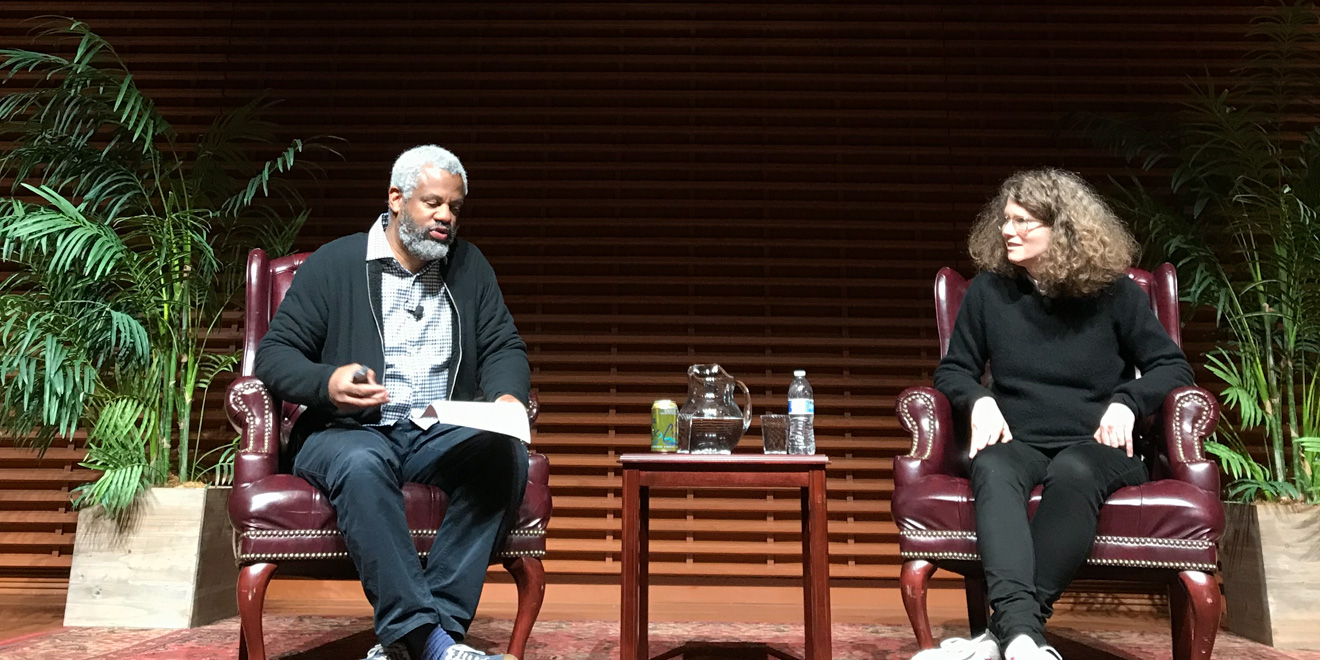Artist Dana Schutz spoke in conversation with Hamza Walker, director of nonprofit art space LAXART, on appropriation in the arts during the inaugural talk for the Komal Shah and Gaurav Garg Artist Conversation Series on Monday evening. Hosted by the Office of the Vice President for the Arts and funded by Komal Shah M.S. ’93 and her husband, the series’ mission is to give a platform to international artists to express their perspectives on various socio-political topics.
Schutz, a Brooklyn-based painter whose work has been displayed both domestically and abroad, became the subject of protests when “Open Casket,” her painting of 1955 lynching victim Emmett Till, was displayed at the Whitney Museum of American Art in 2017. During its initial exhibition, several protestors positioned themselves to block onlookers’ view of the work in order to oppose what they considered to be appropriation.
Schutz’s painting of Till was not her first foray into historical art. Walker called her “a chronicler of the times” for her satirical depictions of historical figures such as members of the second Bush administration, Michael Jackson, Bill Clinton and Viktor Yushchenko.
However, Schutz, a white woman, was accused of racial insensitivity and using Till’s suffering for profit when “Open Casket” was released.
In her own defense, Schutz said she wanted to give Till a visual representation in art, which she felt had been previously lacking. She explained how conflicted she felt during the painting’s creation.
“It exacerbated a lot of hurt for some people, and I didn’t want that,” Schutz said. “It changed how I [will] think about things going forward and [about] painting things from a different time.”
Her opinion on “Open Casket” varies day to day, but she maintains that she does not regret painting it.
“I don’t know what to do with it now,” she said. “It’s a painting that can’t exist on social media very well, yet it does. Because what do you do with a picture that you can’t ‘like’?”
Walker then showed dozens of artistic renderings of Till’s story by creators of various backgrounds, including an image of his exhumed grave, paintings of Till’s face and a photograph of the grocery store, where Till was accused of whistling at a white woman, falling into dilapidation.
“Given the nature of the controversy of the painting and not knowing the extent to which people who had serious positions were going to state their claim, I gave [the discussion] some structure so that if we’re really going to talk about this we [could] give it some context,” Walker said following the event.
Before the discussion of “Open Casket,” Schutz recounted how, as a young artist, she loaded the entire contents of her studio into a U-Haul truck to present to a director of a museum. The director went through every painting and then told her: “You might be the worst painter I’ve ever met.”
“I remember just saying ‘Thank you,’” Schutz recalled. “I didn’t know what to say.”
Schutz spoke about the anxiety she felt regarding her paintings that were smudged with fingerprints and had chunks of hair and toilet paper stuck in them.
“I came to the conclusion that I’m proud of my disgusting paintings,” she said.
This article has been updated to reflect that “Open Casket” was shown at the Whitney in 2017, not 2016. The Daily regrets this error.
Contact Sonja Hansen at smhansen ‘at’ stanford.edu.
